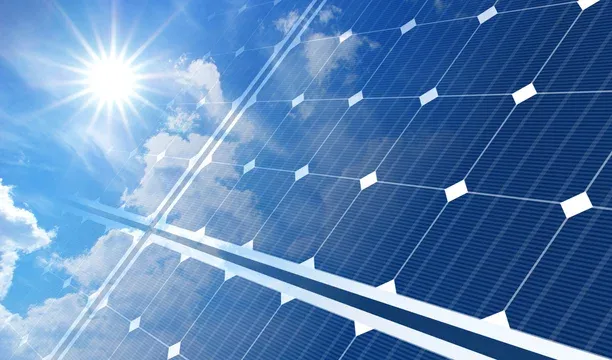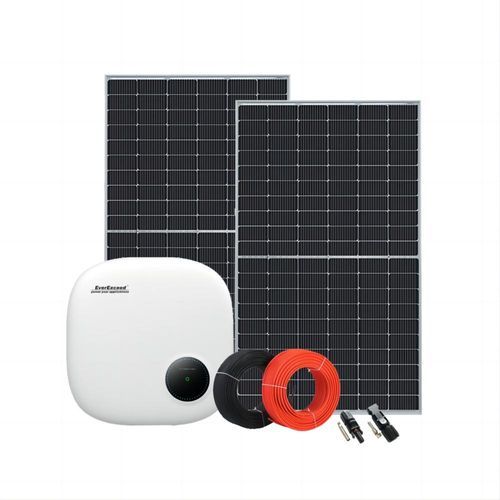
Get a Quote
How Many Solar Panels and Batteries to Power a House?
As the world shifts towards renewable energy, more homeowners are exploring the benefits of solar panel systems paired with solar battery storage to power their homes. However, one of the most common questions is, "How many solar panels and batteries do I need to power my house?" This blog will break down the factors that determine the number of solar panels and batteries required to meet your energy needs and ensure that your home runs efficiently on solar power.
Understanding Your Home’s Energy Consumption
The first step in determining how many solar panels and batteries you need is to understand your home’s energy consumption. The average household energy consumption varies based on location, home size, number of occupants, and energy habits. Most homes in the U.S. use between 10,000 and 12,000 kWh per year, which translates to about 833 to 1,000 kWh per month.
To get a precise estimate, review your electricity bills for the past year and note your monthly energy usage. This will give you a baseline figure to work with when calculating the number of solar panels and batteries you need.
Calculating the Number of Solar Panels Needed
Once you know your average monthly energy consumption, the next step is to calculate how many solar panels are required to generate that amount of energy. Several factors influence this calculation:
1. Solar Panel Output
The power output of solar panel systems varies depending on the panel’s efficiency, size, and sunlight exposure. On average, a standard residential solar panel produces between 250 to 400 watts per hour under ideal conditions.
For instance, if you need to generate 1,000 kWh per month and your solar panels produce 300 watts each, you would calculate the number of panels needed as follows:
1,000 kWh per month ÷ (300 watts per panel × average sunlight hours per day × 30 days) = Number of panels needed.
2. Sunlight Hours
The amount of sunlight your location receives plays a significant role in determining how many solar panels you'll need. Areas with more sunlight hours require fewer panels, while locations with less sunlight will need more panels to generate the same amount of energy. The average solar panel system in the U.S. receives about 4 to 6 peak sunlight hours per day.
3. Roof Space and Panel Size
The size of your roof and the available space will also determine the number of solar panels you can install. Larger roofs can accommodate more panels, allowing you to generate more energy. The dimensions of the panels themselves, usually around 65 inches by 39 inches, must also be considered in your calculations.
Determining the Number of Solar Batteries Needed
Solar battery storage is essential for storing the energy generated by your solar panels for use during the night or on cloudy days. The number of batteries you need depends on several factors:
1. Battery Capacity
Solar batteries are rated in kilowatt-hours (kWh), which measures the amount of energy they can store. Common residential batteries like the Tesla Powerwall have a capacity of around 13.5 kWh. To determine how many batteries you need, you should calculate how much energy your household consumes when solar panels aren’t producing, such as at night or during extended periods of cloudy weather.
For example, if your home consumes 30 kWh during non-sunlight hours, you would need at least three Tesla Powerwalls to store enough energy (30 kWh ÷ 13.5 kWh per battery = 2.22, rounded up to 3 batteries).
2. Depth of Discharge (DoD)
The Depth of Discharge (DoD) is the percentage of the battery's capacity that can be used without affecting its lifespan. Most solar batteries have a DoD of 80-90%. When calculating how many batteries you need, consider the DoD to avoid underestimating your storage requirements.
3. Backup Power Needs
If you want your solar battery storage to provide backup power during an outage, you'll need to factor in your household’s essential loads. Critical systems like refrigerators, heating, and medical equipment may require additional battery capacity to ensure uninterrupted power.
Estimating the Cost of Solar Panels and Batteries
The cost of solar panel systems and solar battery storage can vary significantly based on the number of panels and batteries required, the quality of the products, and installation costs.
1. Solar Panel Costs
On average, residential solar panels cost between $2.50 to $3.50 per watt. For a typical 6kW system, this would range from $15,000 to $21,000 before tax incentives. Keep in mind that federal and state incentives can significantly reduce the overall cost.
2. Battery Costs
The cost of solar batteries is generally between $400 to $750 per kWh. A Tesla Powerwall, for example, costs around $7,500. Depending on how many batteries your system requires, your storage costs could add up quickly. However, the long-term savings and the security of having a backup power source often justify the initial investment.
Factors Affecting System Performance and Efficiency
When designing your solar panel system with solar battery storage, several factors can affect the overall performance and efficiency:
1. Orientation and Tilt of Panels
The orientation (direction) and tilt (angle) of your solar panels are crucial for maximizing energy production. Ideally, panels should face south and be tilted at an angle equal to your latitude to capture the most sunlight throughout the year.
2. Inverter Efficiency
The inverter converts the direct current (DC) produced by the solar panels into alternating current (AC) used by your home. Inverter efficiency can impact how much energy is usable, so choosing a high-quality inverter is important for optimizing system performance.
3. System Maintenance
Regular maintenance of your solar panel system and solar battery storage is essential to ensure long-term performance. Cleaning panels, checking connections, and monitoring battery health will help maintain efficiency and extend the lifespan of your system.
Conclusion
In conclusion, determining the right number of solar panels and batteries to power your home is a crucial step in achieving energy independence. By understanding your energy needs, considering your location, and selecting high-quality components, you can design an efficient and cost-effective solar energy system.
To ensure the success of your solar project, partnering with a trusted and experienced provider is essential. EverExceed offers industry-leading solar panel systems and solar battery storage solutions tailored to meet your specific needs. With a commitment to quality and innovation, EverExceed helps you maximize your solar investment, providing reliable energy solutions that are sustainable and efficient. Choose EverExceed for your solar needs and take the first step towards a greener, more energy-independent future.


